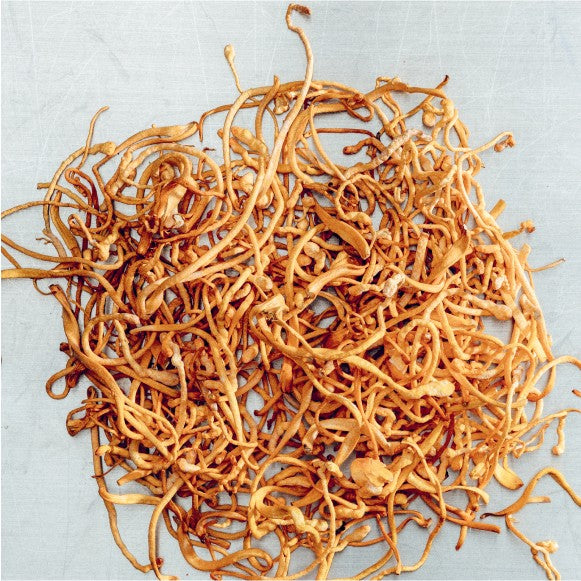Perimenopause is the period just before menopause kicks in, when menstruation is slowing to a stop and fertility is gradually decreasing. For some women, it begins in the early 40s; for others, it doesn’t start until well into the 50s. For some, perimenopause lasts a few months; for others, it lasts a few years.
Perimenopausal symptoms are also wide-ranging and varied, from mood swings and fatigue to sleep disruption, night sweats, vaginal dryness, and brain fog.
“The term perimenopause is really very fuzzy,” says Dr. Suzanne Gilberg-Lenz, a doctor and advocate for integrative women’s health. “There is no definition. Peri- is Latin and means ‘the time around’. It isn't like at 35, this is what happens; that’s not how our bodies work. Perimenopause is an amazing opportunity to surrender and grow.”
So how can you best support your body (and your brain) with supplements for perimenopause? Amanda sat down with Dr. Gilberg-Lenz to learn about the myriad of symptoms of perimenopause and what the best perimenopause vitamins are.
5 Best Vitamins & Supplements for Perimenopause
1. Chasteberry
Chasteberry, or Vitex agnus castus, is a deciduous shrub often taken in supplement form to aid in fertility and address symptoms of menstruation and other hormonal imbalances. “One of the things it does is it looks like it increases your own production of progesterone in the second half of the cycle,” Dr. Gilberg-Lenz explains. “It can also be really helpful for PMS.” There are many studies that show positive effects of chasteberry natural supplements (commonly called “vitex”) in treating PMDD, PMS, and mood symptoms of perimenopause and menopause. Because of these effects, it’s easy to see why many pre and postmenopausal women turn to this herbal supplement to support healthy hormone levels. If you want to balance hormones naturally, try chasteberry.
2. Black Cohosh
Black cohosh is an herb whose roots are used medicinally to treat menopausal symptoms. “Black cohosh can be very helpful, specifically for hot flashes,” Dr. Gilberg-Lenz says. While studies have attempted to show that black cohosh raises estrogen levels with varying results, many women find significant relief in using black cohosh supplements to treat the symptoms of perimenopause and menopause (such as night sweats, weight gain, vaginal dryness, sleep disturbances, and stress).
3. Omega 3 Fatty Acids
Omega-3 Fatty Acids have a plethora of health benefits, and are also one of the best supplements for perimenopause. Omega-3 Fatty Acids make up the membranes in nearly every part of your body, support all essential bodily functions, provide the body with energy, and support hormone function, however, humans cannot produce them naturally, which means you must obtain them from food sources and supplements. Studies show that taking Omega-3 Fatty Acid supplements also helps to reduce mood swings from perimenopause and mitigate hot flashes.
4. Vitamin D
Vitamin D has a regulatory effect on the dopamine system in the brain, and studies have shown a correlation between low Vitamin D levels and low mood during perimenopause. Dr. Gilberg-Lenz recommends taking VItamin D for perimenopause to help ward off negative side effects like low mood, nerves, and irritability. If you’re experiencing perimenopause symptoms, consider taking vitamin D as your daily perimenopausal supplement. With a daily dietary supplement, you will be able to regulate Vitamin D levels in your body and help alleviate unwanted symptoms.
In Conclusion
While Dr. GIlberg-Lenz emphasizes the importance of addressing your needs with perimenopause supplements, she also encourages women to embrace the change and take it as it comes.
“During perimenopause, your hormones make another transition,” Dr. Gilberg-Lenz explains. “You feel different, your cycle is different, your weight is different, your experience in your body is different. Those are real things. I think we’ve veered into a little bit of pathologizing, as if it's a disease, and perimenopause is a bad thing that you need to fix. It implies there's something wrong. But what you get to do is be in your body in a way that is safe, healthy, and comfortable for you. It's not just that estrogen is declining; it's progesterone, and the ratios are changing. I don't like talking about balances and imbalances, because when we're talking about perimenopause, it's not an imbalance — it's a change. I'm not trying to make you be 30, I'm trying to help you be 37 in a way that feels good for you.”
Sign Up, Nerd Out
Get wellness tips, education, and recipes
delivered straight to your inbox.
Get wellness tips, education,
and recipes delivered
straight to your inbox.










